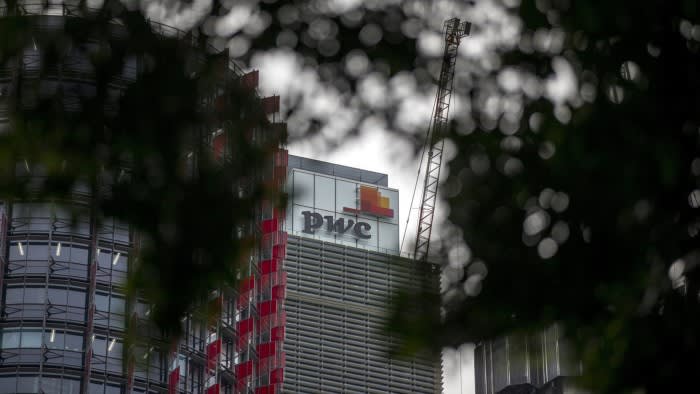Unlock the Editor’s Digest for free
Roula Khalaf, Editor of the FT, selects her favourite stories in this weekly newsletter.
PwC has been accused of interfering in Australia’s political and regulatory affairs after documents revealed the Big Four accounting group warned its local firm against co-operating with investigations into a damaging tax leaks scandal without permission.
The Australian Senate published documents on Friday that included a letter from Diana Weiss, PwC’s global counsel, sent to PwC Australia last year. She wrote that the local firm needed to comply with a set of remedial actions or face suspension, or expulsion, from the global network.
A drastic move by PwC International to take control of PwC Australia last year followed the publication of internal PwC emails by the Senate in May. They revealed a partner in its tax practice had used confidential information from government meetings to assist his colleagues in winning new business from multinational technology companies.
The Weiss letter, sent in May two weeks after PwC launched a review of its Australian firm, stipulated that PwC Australia should not provide “any regulator or other governmental or legal authority any formal, significant or substantive submissions or responses” without approval from Weiss and a representative of PwC International’s leadership team.
The letter said Weiss and the network’s representative also had to sign off any decisions related to the accountability of individuals regarding the tax leaks scandal.
Deborah O’Neill, chair of the Senate committee conducting the inquiry into the consulting industry, said on Friday that the Weiss letter demonstrated, “in crystal-clear detail, the lengths to which PwC International went in its attempt to inhibit transparency and accountability in the wake of the tax leaks scandal”.
“The full implications of PwC International’s clear intent to interfere with Australian parliamentary, regulatory and legal authorities must be determined,” she said, adding that the Australian public deserved to know how PwC International had acted to “firewall itself from the Australian firm” to protect its global reputation.
The Weiss letter was also sent to the firm’s global chair Bob Moritz and partner Kevin Burrowes, who was named as chief executive of PwC Australia in June last year, a month after it was sent. It said the tax leaks scandal had caused “ongoing reputational and global brand damage” to PwC.
PwC Australia declined to comment on the senator’s statement, and PwC International was not immediately available for comment.
The scandal provoked an ongoing investigation into the actions and culture of PwC Australia — and the wider consulting industry — and led to repeated calls for the global unit to release details of its own investigation detailing which international partners used the confidential information.
Despite the release of the Weiss letter, the Senate documents revealed that two subsequent letters related to the remediation process were not provided to the Senate, as they contained “commercially sensitive” and “personal sensitive” information.
PwC this week said Asia-Pacific profits declined nearly 13 per cent in the year to June, as it lost market share as a result of scandals in Australia and China.


